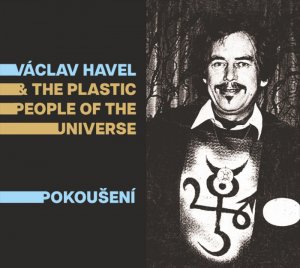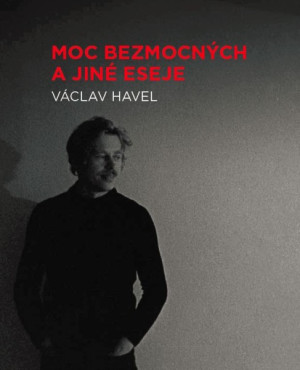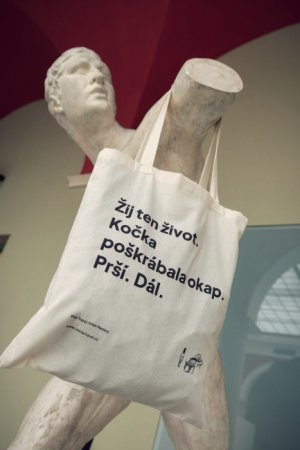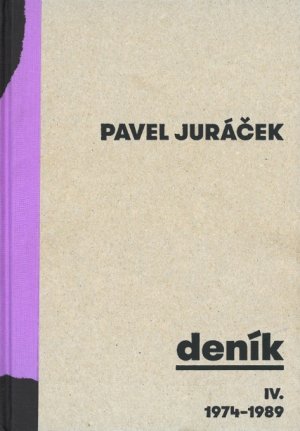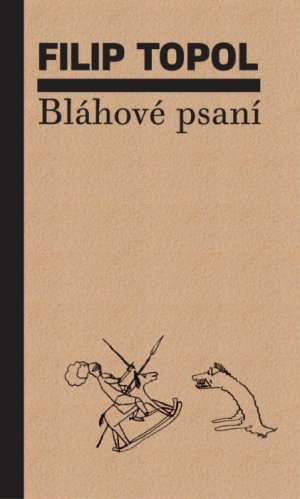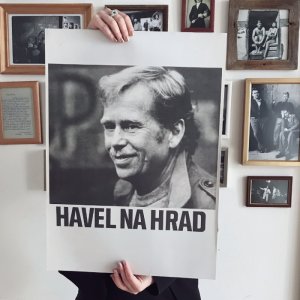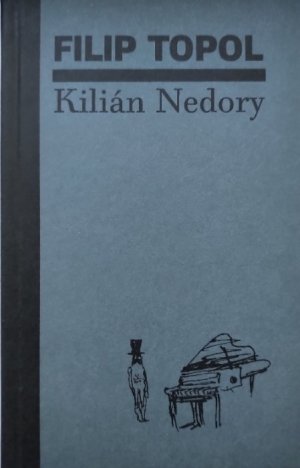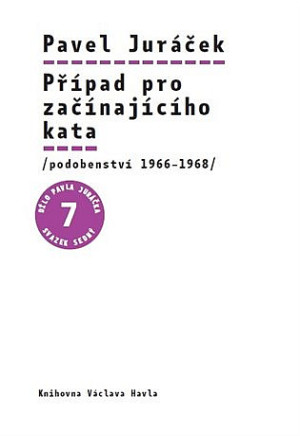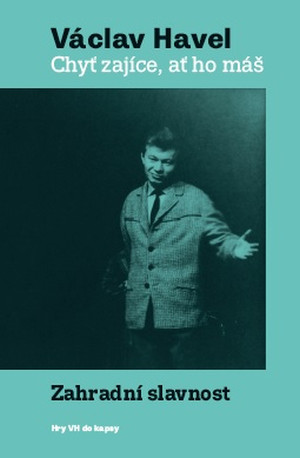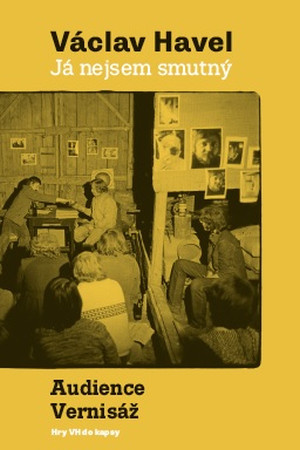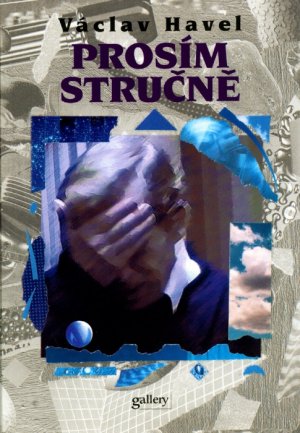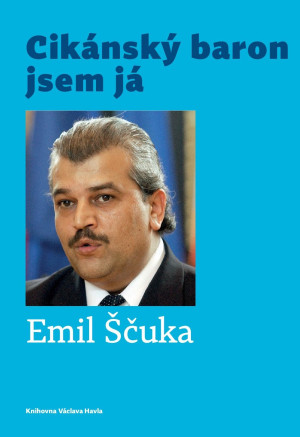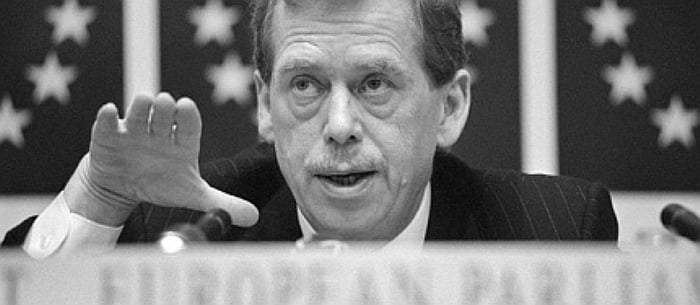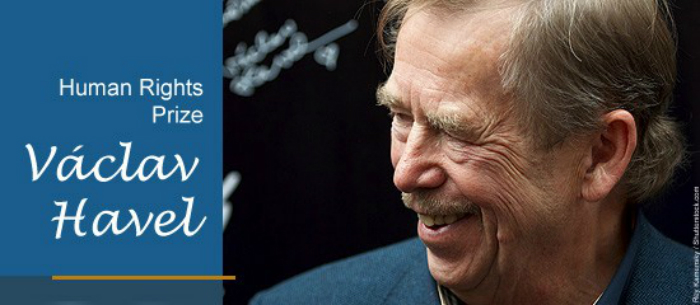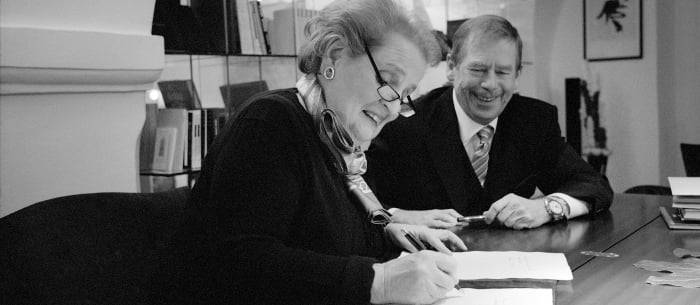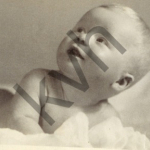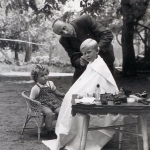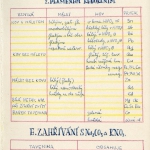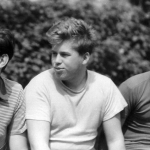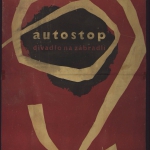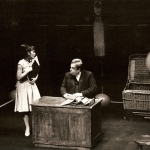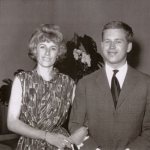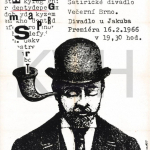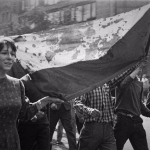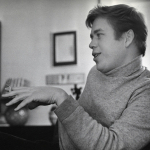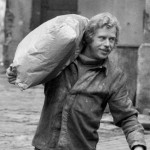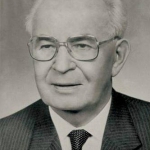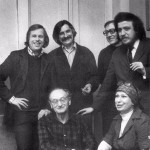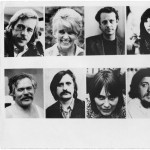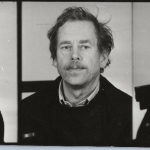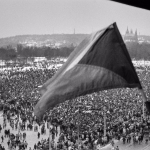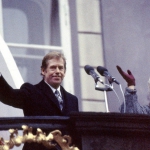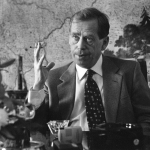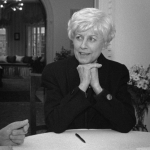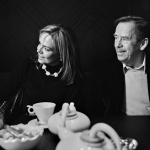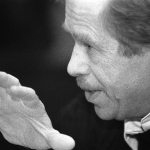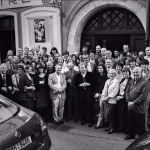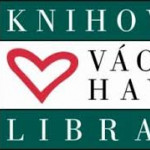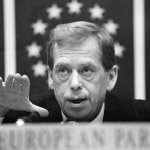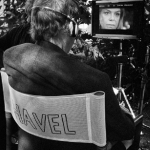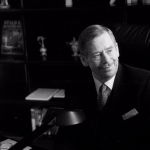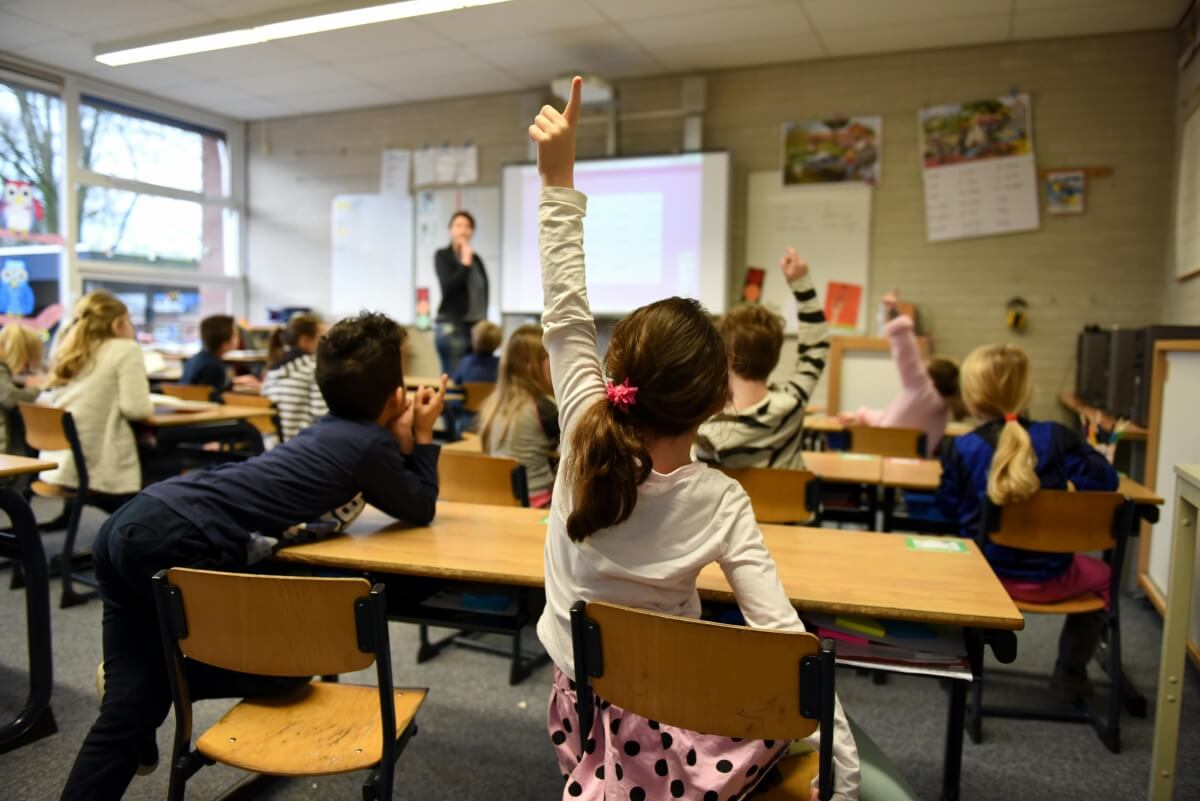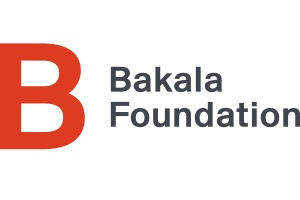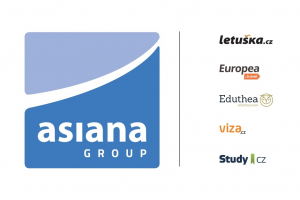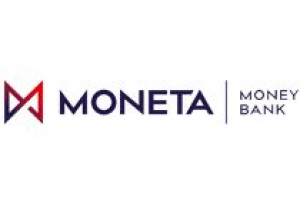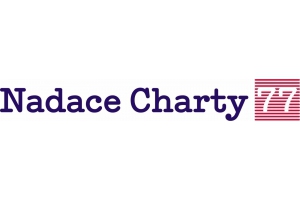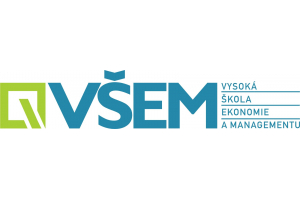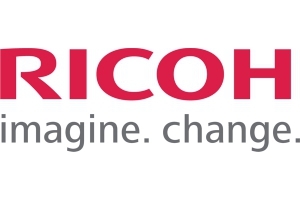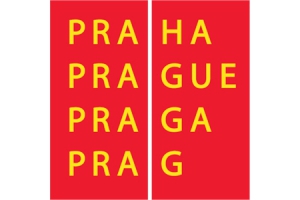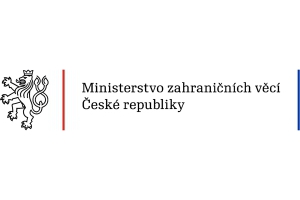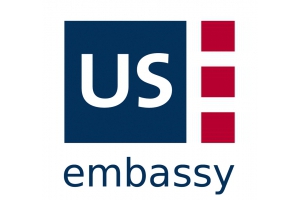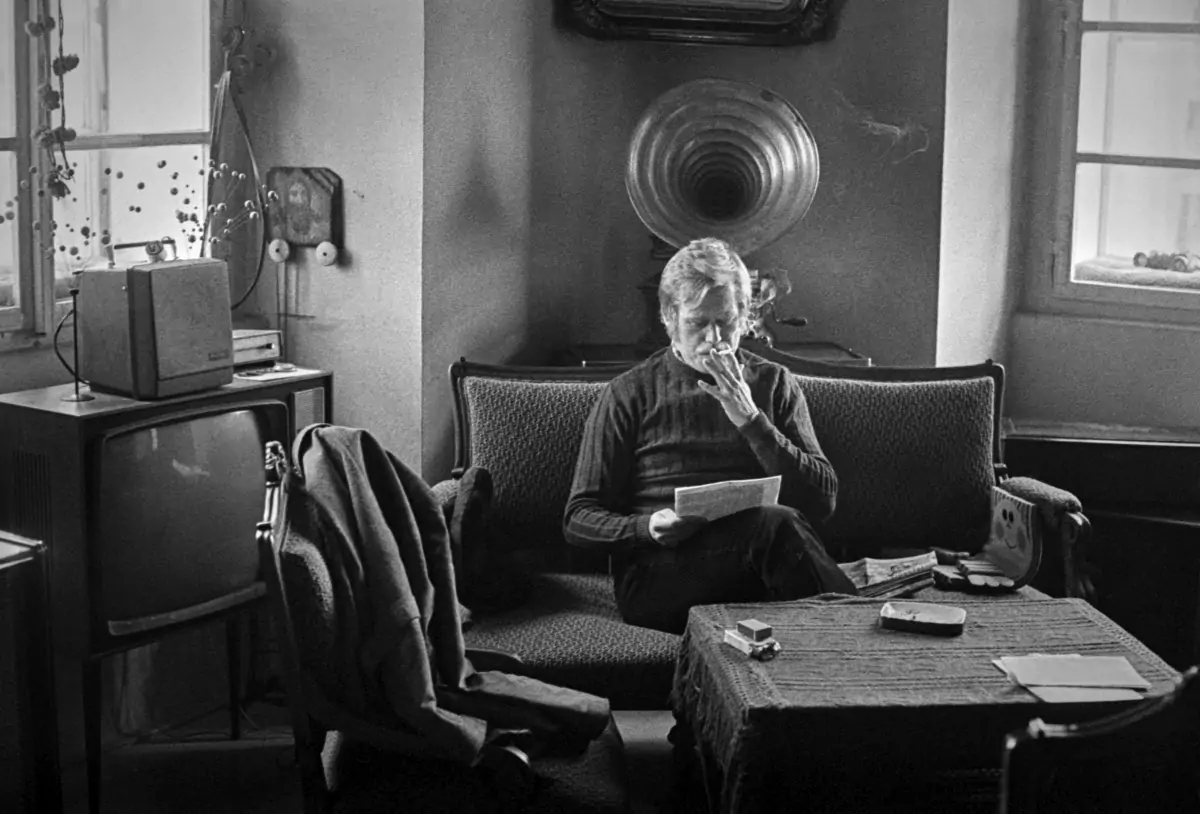
Club / News / Program
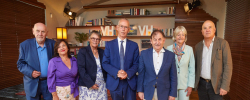
Three candidates shortlisted for the 2023 Václav Havel Prize 05/09/23
The selection panel of the Václav Havel Human Rights Prize, which rewards outstanding civil society action in defence of human rights in Europe and beyond, has today announced the shortlist for the 2023 Award. Meeting in Prague today, the panel – made up of independent figures from the world of human rights and chaired by the President of the Parliamentary Assembly of the Council of Europe (PACE) Tiny Kox – decided to shortlist the following three nominees, in alphabetical order: More
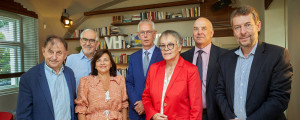
Three candidates shortlisted for the 2022 Václav Havel Human Rights Prize 06/09/22
The discussion among the seven-member jury helmed by the president of the Parliamentary Assembly of the Council of Europe centred on the importance of the issue of human rights during this tense period. The finalists include Vladimir Kara-Murza, a political prisoner and leading Russian democracy campaigner; Ukraine’s 5 AM Coalition, which gathers evidence of human rights abuses stemming from Russia’s invasion of the country; and Hungary’s Rainbow Coalition defending LGBTQIA+ rights. “This year’s selection reflects the central role that human rights play in the current European crisis,” says Michael Žantovský, jury member and executive director of the Václav Havel Library, which bestows the prize in cooperation with the Parliamentary Assembly of the Council of Europe and Nadace Charty 77.
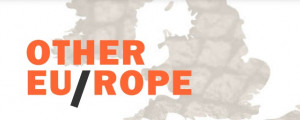
The Other Europe 27/04/22
Dear Friends, After three years we have completed the international project The Other Europe, during which, in cooperation with partner institutions, we have processed and made public recordings of interviews shot in 1987 and 1988 behind the Iron Curtain, and in exile, with important representatives of the opposition and the arts, as well as random citizens. Over those three years we have prepared video, audio and text of 106 interviews in speakers’ native languages and English translation. Despite public health restrictions in the Covid period, we have jointly prepared 16 international conferences and public presentations in six Central and Eastern European states. More
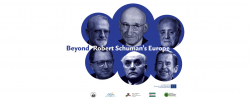
From Schuman to Havel – what next? 16/02/22
The Václav Havel Library is a proud partner of the project Beyond Robert Schuman’s Europe More
Program for March 2013<>
entry-free
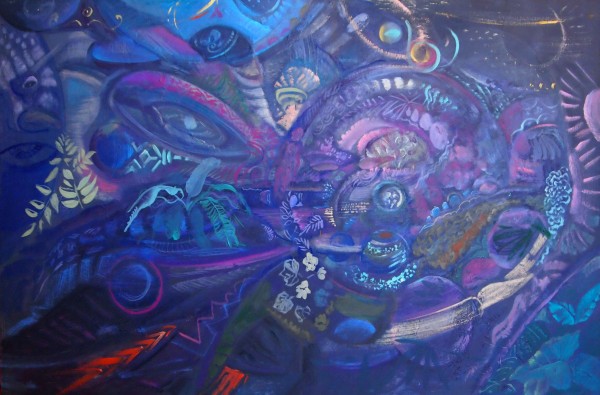
Otto Placht: Storyteller
- Where: Montmartre Gallery
- When: February 19, 2013, 19:00 – March 24, 2013, 18:00
Exhibition of paintings by Otto Placht inspired by the mystical stories and contemporary life of the Shipibo Amazonian Indian tribe.
Otto Placht (*1962 Prague) is an artist known to the Czech public primarily as a “painter of the jungle”. He graduated from the Academy of Fine Arts in the 1980s and from 1990 to 1993 was active at Jiří Načeradský’s Studio of Monumental Creation.
He originally focused on producing works based on fractal and chaos theory.
In Miami in 1993 Placht came across paintings by the artist Pablo Amaringo inspired by the hallucinogen ayahuasca. He was so captivated by Amaringo’s work that he travelled to Pucallpa in Peru, where he lived for several years in the jungle with the Shipibo tribe, whose aesthetic has had a marked influence on him. As he himself put it: “I ended up at simple, geometric skeletons and I didn’t know how to liven things up. I was attracted to spontaneous painting and I felt that in the jungle there would be the shem that would bring the skeleton to life and wrap it in living tissue. And in the end that living tissue tore the skeleton apart completely.”
The first exhibition of Placht’s Amazonian paintings took place at Galerie Václava Špály in 1997. Since then he has exhibited regularly. He lives part of the time in Prague and part of the time in Pucallpa, where he has taught as a visiting professor at the local university.
At Galerie Montmartre Otto Placht is showing a series of paintings from this year entitled Kosmovize (Cosmovision). He assumes the role of a storyteller who has travelled between scattered Indian clans telling old stories and myths and serving as a unifying element of the tribe. In his oil paintings this ancient culture blends naturally with the present, becoming perhaps a kind of modern Peruvian mythology seen through the artist’s eyes. Foundational myths, such as one about the creation of plant life, are depicted, as are other myths alive among the aborigines to this day. An example is the legend of the sirens said to inhabit the local lake Yarinacocha and drag people beneath its surface. At the same, we encounter “postmodern” Indian society – tiny, chubby Shipibo tribesmen dancing and drinking alcohol in late-night bars.
Though Kosmovize swarms with figures that are not typical of Placht’s work, we can still make out the artist’s world with absolute certainty. It comprises gnarly stories of creation and life, diverse and parallel perspectives, and flowing forms that grow like vegetation one into the next, swallowing each other up. These are multilayered, overcrowded stories based on the incredibly complicated structure of life that the jungle represents.
As Otto Placht says: “The Amazon is an esoteric world hidden in the carpet of the primeval forest. Space is disappearing there, and the way of understanding is changing. There are no cardinal directions and you’re always wandering in circles. Everything between life and death takes place, in the earth, in the water, in the mud, in the air between the leaves, and in the crowns of the trees.”
Marianna Placáková
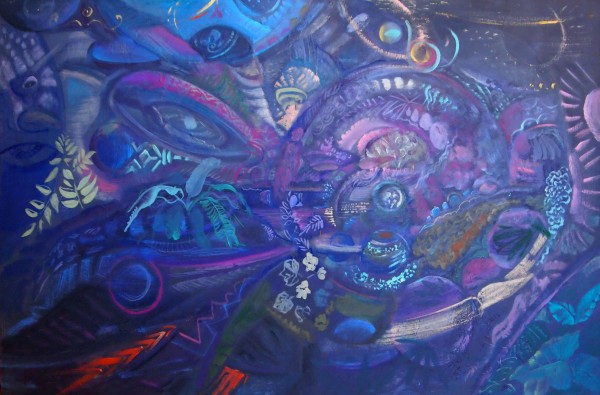
Otto Placht: Storyteller
- Where: Montmartre Gallery
- When: February 19, 2013, 19:00 – March 24, 2013, 18:00
Exhibition of paintings by Otto Placht inspired by the mystical stories and contemporary life of the Shipibo Amazonian Indian tribe.
Otto Placht (*1962 Prague) is an artist known to the Czech public primarily as a “painter of the jungle”. He graduated from the Academy of Fine Arts in the 1980s and from 1990 to 1993 was active at Jiří Načeradský’s Studio of Monumental Creation.
He originally focused on producing works based on fractal and chaos theory. In Miami in 1993 Placht came across paintings by the artist Pablo Amaringo inspired by the hallucinogen ayahuasca. He was so captivated by Amaringo’s work that he travelled to Pucallpa in Peru, where he lived for several years in the jungle with the Shipibo tribe, whose aesthetic has had a marked influence on him. As he himself put it: “I ended up at simple, geometric skeletons and I didn’t know how to liven things up. I was attracted to spontaneous painting and I felt that in the jungle there would be the shem that would bring the skeleton to life and wrap it in living tissue. And in the end that living tissue tore the skeleton apart completely.”
The first exhibition of Placht’s Amazonian paintings took place at Galerie Václava Špály in 1997. Since then he has exhibited regularly. He lives part of the time in Prague and part of the time in Pucallpa, where he has taught as a visiting professor at the local university.
At Galerie Montmartre Otto Placht is showing a series of paintings from this year entitled Kosmovize (Cosmovision). He assumes the role of a storyteller who has travelled between scattered Indian clans telling old stories and myths and serving as a unifying element of the tribe. In his oil paintings this ancient culture blends naturally with the present, becoming perhaps a kind of modern Peruvian mythology seen through the artist’s eyes. Foundational myths, such as one about the creation of plant life, are depicted, as are other myths alive among the aborigines to this day. An example is the legend of the sirens said to inhabit the local lake Yarinacocha and drag people beneath its surface. At the same, we encounter “postmodern” Indian society – tiny, chubby Shipibo tribesmen dancing and drinking alcohol in late-night bars.
Though Kosmovize swarms with figures that are not typical of Placht’s work, we can still make out the artist’s world with absolute certainty. It comprises gnarly stories of creation and life, diverse and parallel perspectives, and flowing forms that grow like vegetation one into the next, swallowing each other up. These are multilayered, overcrowded stories based on the incredibly complicated structure of life that the jungle represents.
As Otto Placht says: “The Amazon is an esoteric world hidden in the carpet of the primeval forest. Space is disappearing there, and the way of understanding is changing. There are no cardinal directions and you’re always wandering in circles. Everything between life and death takes place, in the earth, in the water, in the mud, in the air between the leaves, and in the crowns of the trees.”
Marianna Placáková
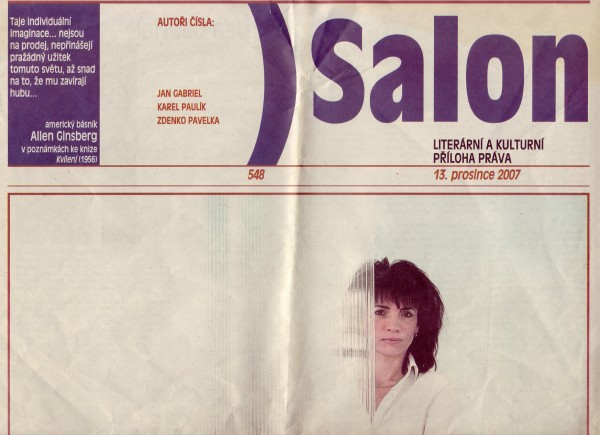
Salon Evening
- Where: Montmartre Gallery
- When: March 4, 2013, 19:00 – 21:00
An evening dedicated to Salon, the cultural and literary supplement of the newspaper Právo. Novelist Emil Hakl will read a short story he wrote for Salon’s literary and humanitarian series “Short Story for Adra”, the writer Kateřina Tučková and supplement’s editor Zbyněk Vlasák will recall the non-traditional launch of her novel Žítkovské bohyně (The Goddesses of Žítková) in the village of Žítková, a short story by novelist and editor Štěpán Kučera will receive a staged reading and the critic Štěpán Švec will present his acerbic columns.
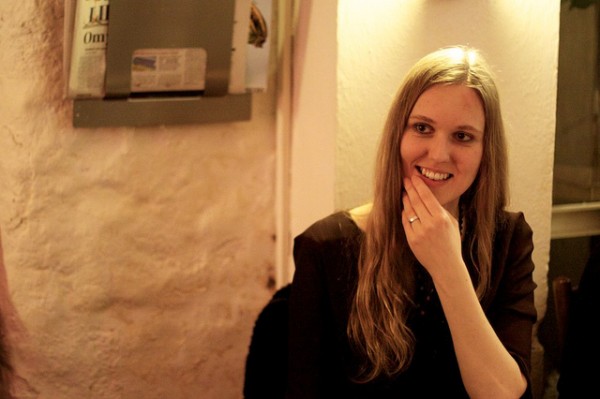
Ivana Myšková: How to remove anxiety without the head remaining under the skin?
- Where: Montmartre Gallery
- When: March 5, 2013, 19:00 – 21:00
And can altruism be inappropriate? Destructive? Unbearable? Can good be aggressive? And sympathy merciless? And what should one do if one meets a wounded animal? Tomáš Weisse will read from his own rich texts and introduce Ivana Myšková, author of the prose debut Nícení (Fra 2012).
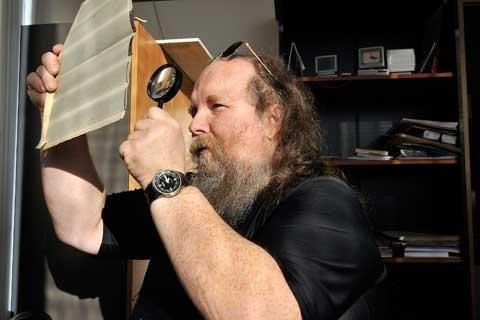
The Czech Underground II. František Čuňas Stárek: The Czech Underground in Documentary Films
- Where: Montmartre Gallery
- When: March 6, 2013, 10:30 – 12:15
The Czech Underground is a series of lectures organised by the Faculty of Humanities at Charles University in cooperation with the Václav Havel Library. Its aim is to explore the collective memory of the underground phenomenon in modern Czech history. Speakers will include those who were directly involved in underground activities.
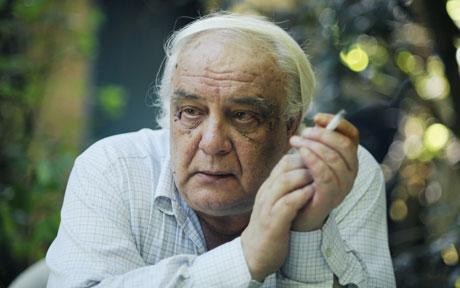
Vladimir Bukovsky – And the Wind Returns
- Where: Montmartre Gallery
- When: March 6, 2013, 19:00 – 21:00
A meeting with Vladimir Bukovsky, a dissident and human rights campaigner who spent many years in Soviet Gulag camps and psychiatric institutions. And the Wind Returns (published in Czech as A vítr se vrací by Volvox Globator, 2012) is his best-known work, a wild chronicle of a period of resistance, samizdat, trials and imprisonment. The evening is being held in cooperation with Volvox Globator and the Institute for the Study of Totalitarian Regimes.
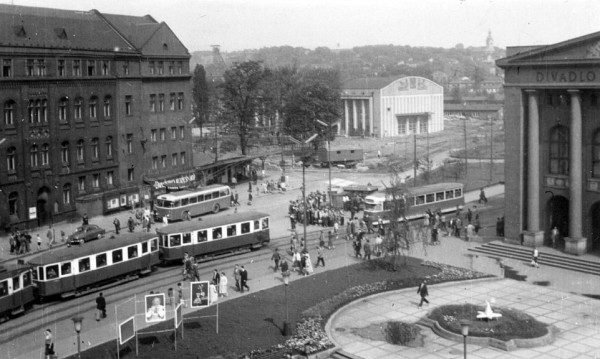
The Václav Havel Library in Ostrava
- Where: The Černá louka Exposition Grounds, Ostrava
- When: March 8, 2013 – March 10, 2013
The Václav Havel Library is taking part in the third Ostrava Book Fair.
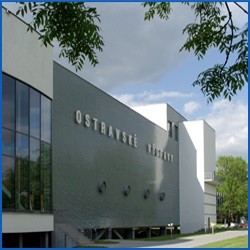
The Václav Havel Library Live
- Where: The Černá louka Exposition Grounds, Ostrava
- When: March 9, 2013, 13:00 – 14:00
Presentation of the Václav Havel Library at the third Ostrava Book Fair, including readings of excerpts from some of the Library’s recently published titles.
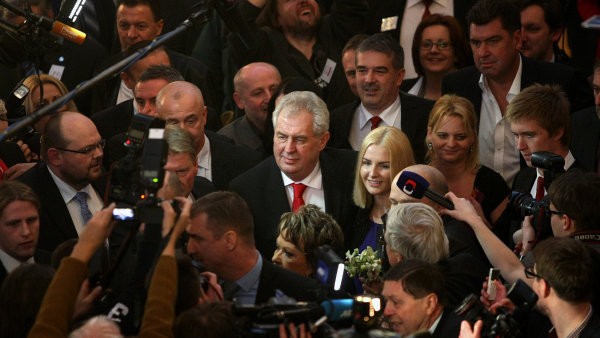
We Have a New President
- Where: Montmartre Gallery
- When: March 11, 2013, 19:00 – 21:00
Journalist Tomáš Němeček (Lidové noviny), former human rights minister Michael Kocáb, former supreme state attorney Renáta Vesecká and musician Mikuláš Chadima will discuss expectations of the new Czech head of state. The debate will be chaired by political scientist Jiří Pehe.
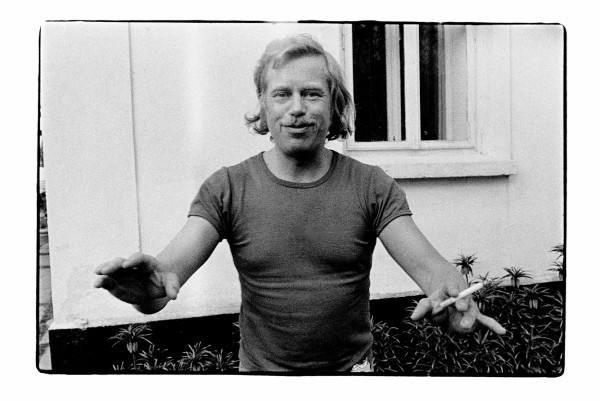
Václav Havel’s Anticodes – Exhibition Opening
- Where: National Theatre Piazzeta, Prague
- When: March 12, 2013, 17:00 – 18:00
Opening of an exhibition composed of the most interesting visual poems from Václav Havel’sAnticodes. The Václav Havel Library is putting on the show in cooperation with the National Theatre on the occasion of the publication of a newly expanded edition of the Anticodes collection and the premiere of a theatrical production of Anticodes by the Laterna Magika ensemble at the New Stage.
The exhibition runs until 7 April 2013.
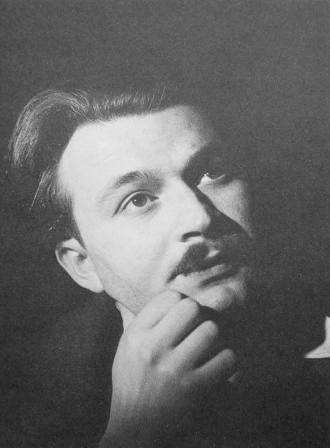
VHL Film Marathon III – The Theatrical Beginnings of Václav Havel
- Where: Montmartre Gallery
- When: March 12, 2013, 18:00 – 23:30
Between 1959 and 1968, Václav Havel worked in various positions with Prague municipal theatres and the Theatre on the Balustrade. Working alongside such figures as Alfréd Radok and Jan Grossman influenced his development and views on theatre. The third VHL film marathon focuses on how contemporary film and TV crews recorded these ensembles and individuals.
Screenings:
Král Ubu (Pere Ubu, Z. Kubeček, 1964 version, 116 min),
Alfréd Radok (A. Kisil, 2000, 57 min),
Hra o lásce a smrti (A Play About Love and Death) (A. Radok, 1964, 40 min)
Special guest: Vladimír Just
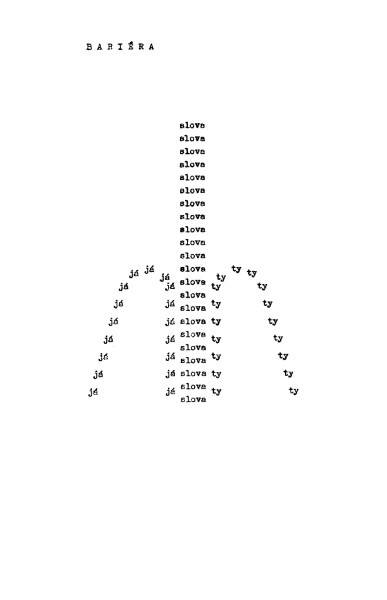
Václav Havel’s Anticodes
- Where: National Theatre Piazzeta, Prague
- When: March 12, 2013, 17:00 – April 7, 2013, 18:00
An exhibition composed of the most interesting visual poems from Václav Havel’s Anticodes. The Václav Havel Library is putting on the show in cooperation with the National Theatre on the occasion of the publication of a newly expanded edition of the Anticodes collection and the premiere of a theatrical production of Anticodes by the Laterna Magika ensemble at the New Stage.
The exhibition runs until 7 April 2013.
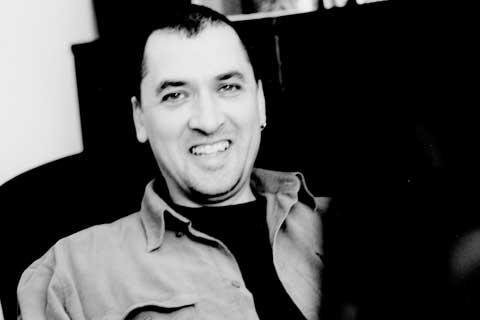
Emil Hakl: On True Stories
- Where: Montmartre Gallery
- When: March 13, 2013, 19:00 – 21:00
Novelist Emil Hakl will discuss his freshly published work Skutečná událost (A True Story), in which the story in question involves the Red Army Faction’s terror in Germany in the autumn of 1978; an overheating boiler in contemporary Prague; and relations of a romantic nature. Emil Hakl: “It is questionable if kidnappings and killings are the happiest solution. As a discriminating individual I add that they’re not.”
This lively literary evening will take place in cooperation with the Argo publishing house.
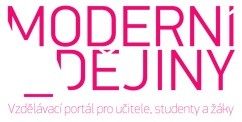
The Roles and Limits of Teachers
- Where: Montmartre Gallery
- When: March 14, 2013, 15:00 – 17:30
Is the mission of teachers “merely” to teach their subject or also to actively contribute to the shaping of the personality of young people and their moral and civic outlook? Do teachers have the “right” to speak about topical social and political events? How should they communicate their views with fellow citizens and their pupils? Where is the border between, on one hand, efforts to orient students with regard to society and politics and to lead them to a critical perspective and, on the other, willful political agitation? These questions will be aired in an afternoon discussion organised by Ostrava’s PANT association, which runs the Moderní-Dějiny.cz (modern history) website, in cooperation with the Václav Havel Library and the NGO People in Need.
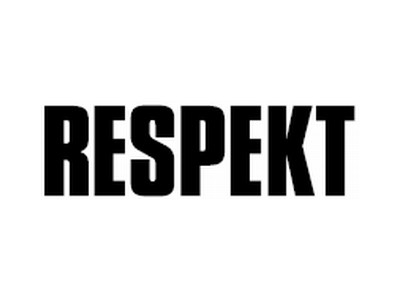
How to Find a Way Forward in March
- Where: Montmartre Gallery
- When: March 19, 2013, 19:00 – 21:00
Debate on current affairs with editors from the weekly Respekt.
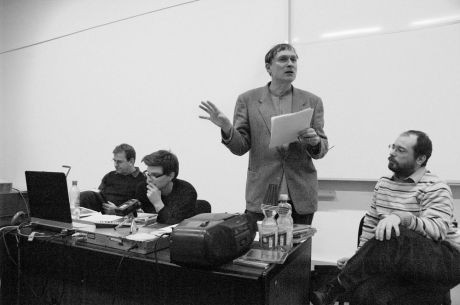
The Czech Underground II. Martin Machovec: The Literary Underground
- Where: Montmartre Gallery
- When: March 20, 2013, 14:00 – 15:45
The Czech Underground is a series of lectures organised by the Faculty of Humanities at Charles University in cooperation with the Václav Havel Library. Its aim is to explore the collective memory of the underground phenomenon in modern Czech history. Speakers will include those who were directly involved in underground activities.
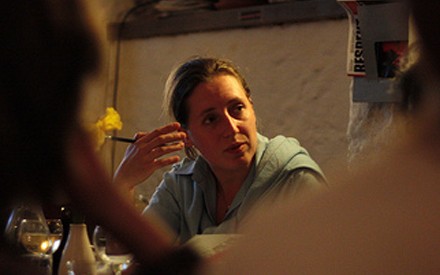
XIN, or Where Dragons Live
- Where: Montmartre Gallery
- When: March 20, 2013, 19:00 – 21:00
Zuzana Li presents a new series of modern Chinese literature issued by the Verzone publishing house under the title XIN. She will debate contemporary Chinese literature, ideological criteria and the joys and pitfalls of translation into Czech with academic Dušan Andrš and translator Denis Molčanov. There will also be readings from the works of novelists Eileen Chang, Jen Lian-ke and Šen Cchung-wen.
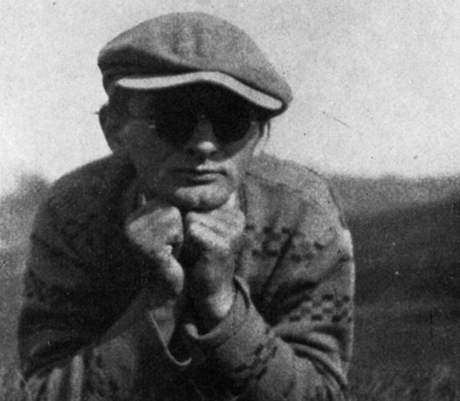
Josef Kocourek: Marta, Marta, Marta!
- Where: Montmartre Gallery
- When: March 21, 2013, 19:00 – 21:00
An evening dedicated to Josef Kocourek (1909–1933), an eccentric, intense and charismatic writer and teacher whose death occurred on the last day of March 80 years ago. Editor Michal Jareš and visual artist Vít Ondráček will discuss Kocourek’s life and work, while David Steigerwald will read excerpts from his works. Jaromír Typlt will host the evening.
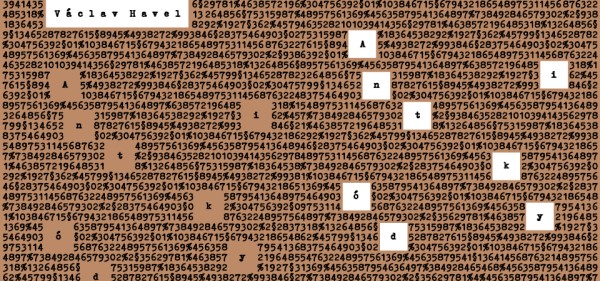
Václav Havel: Anticodes
- Where: New Stage National Theatre, Národní 4, Prague
- When: March 21, 2013, 20:00 – 22:00
Premiere of an production based on the motifs of Václav Havel visual poems by the Laterna magika ensemble.
Video form the preparation of the performance.
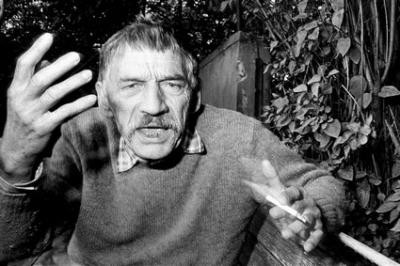
The Life and Work of Dominik Tatarka
- Where: Montmartre Gallery
- When: March 25, 2013, 18:00 – 20:00
Bratislava literary club and Milan Hamada.
Milan Hamada, a recipient of the Dominik Tatarka Prize, is among the most important figures in Slovak literature. He recently saw the publication of volume one of the four-volume work Kritické komentáře (Critical Commentaries) bringing together his essays, articles and interviews and creating a comprehensive portrait of the brilliance of this literary academic.
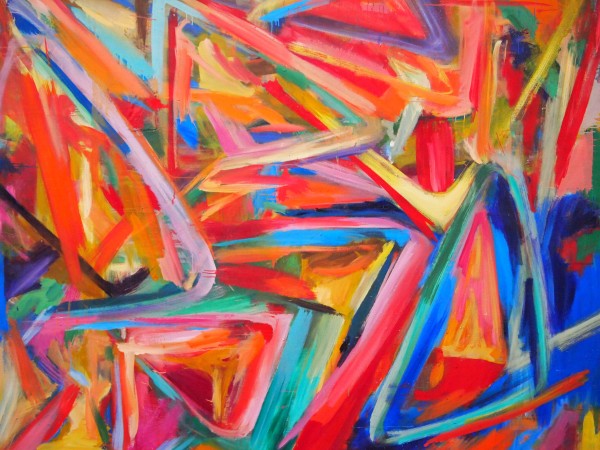
Jan Bačkovský: How Else
- Where: Montmartre Gallery
- When: March 26, 2013, 19:00 – April 28, 2013, 18:00
Jan Bačkovský (born 1957, Hradec Králové) is a member of the generation of painters of the 1980s and exhibited in Confrontation group shows. Between 1979 and 1985, he studied at the Academy of Fine Arts in the studio of monumental art under Professor Arnošt Paderlík. He originally focused on figural painting, before gradually switching to the abstract expression that he devotes himself to today.
The Václav Havel Library is presenting works thatJan Bačkovský has produced this year. They are large-format oil paintings that produce a strongly elemental impression via expressive gestic brushstrokes. In recent years, the painter’s artistic signature has stabilised around a system of vertical and horizontal strokes that intersect and cross, crashing into and supporting one another. It is, in my view, just in these overlaps and in what takes place between them that the magic of his pictures lies. Sometimes their layout conjures an impression that is almost harmonious, in a manner similar to Renaissance works; at other times their apparent randomness and expansiveness capture the world’s ungraspable nature. Clear colours give the canvasses a strong expressiveness that radiates from them, creating an almost physical sensation of taste. Their size also makes a physical impression on the viewer. As Mark Rothko said: “To paint a small picture is to place yourself outside your experience, to look upon an experience as a stereopticon view or with a reducing glass. However you paint the larger picture, you are in it.” And that is the main strength of Bačkovský’s paintings.
Bačkovský himself speaks about his motives for creativity as a distraction from everyday reality. He says: “I don’t know if my paintings differ at all. I’m always painting one picture. This personal position shaped by a large canvas is, from today’s predominantly scientifically descriptive view of the world, hugely liberating.”
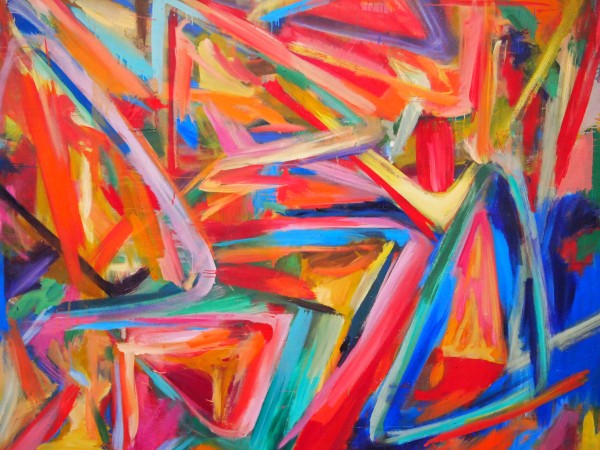
Jan Bačkovský: How Else – Exhibition Opening
- Where: Montmartre Gallery
- When: March 26, 2013, 19:00 – 21:00
Opening of an exhibition of paintings by Jan Bačkovský. The evening will include a reading by poet Ticho.
Jan Bačkovský (born 1957, Hradec Králové) is a member of the generation of painters of the 1980s and exhibited in Confrontation group shows. Between 1979 and 1985, he studied at the Academy of Fine Arts in the studio of monumental art under Professor Arnošt Paderlík. He originally focused on figural painting, before gradually switching to the abstract expression that he devotes himself to today.
The Václav Havel Library is presenting works thatJan Bačkovský has produced this year. They are large-format oil paintings that produce a strongly elemental impression via expressive gestic brushstrokes. In recent years, the painter’s artistic signature has stabilised around a system of vertical and horizontal strokes that intersect and cross, crashing into and supporting one another. It is, in my view, just in these overlaps and in what takes place between them that the magic of his pictures lies. Sometimes their layout conjures an impression that is almost harmonious, in a manner similar to Renaissance works; at other times their apparent randomness and expansiveness capture the world’s ungraspable nature. Clear colours give the canvasses a strong expressiveness that radiates from them, creating an almost physical sensation of taste. Their size also makes a physical impression on the viewer. As Mark Rothko said: “To paint a small picture is to place yourself outside your experience, to look upon an experience as a stereopticon view or with a reducing glass. However you paint the larger picture, you are in it.” And that is the main strength of Bačkovský’s paintings.
Bačkovský himself speaks about his motives for creativity as a distraction from everyday reality. He says: “I don’t know if my paintings differ at all. I’m always painting one picture. This personal position shaped by a large canvas is, from today’s predominantly scientifically descriptive view of the world, hugely liberating.”
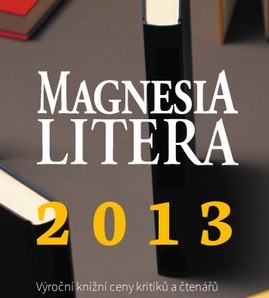
Magnesia Litera 2013
- Where: Montmartre Gallery
- When: March 27, 2013, 19:00 – 21:00
The Litera civic association presents readings by authors nominated in several categories in this year’s Magnesia Litera book awards at the Václav Havel Library. Three or four writers from various categories will take in every reading.
Havel Channel
Havel Channel je audiovizuální projekt Knihovny Václava Havla, jehož cílem je šířit myšlenkový, literární a politický odkaz Václava Havla, bez ohledu na vzdálenost, zeměpisné hranice či nouzové stavy. Jeho páteř tvoří debaty, vzdělávací projekty a rozhovory. Velký prostor je věnován též konferencím, autorským čtením, záznamům divadelních inscenací a koncertům. Audiovizuální projekt Knihovny Václava Havla Havel Channel se uskutečňuje díky laskavé podpoře Karel Komárek Family Foundation.
Publications / E-shop
The central focus of the Library’s publishing programme is the life and work of Václav Havel, his family and close collaborators and friends. For clarity, the programme is divided into six series: Václav Havel Library Notebooks, Václav Havel Library Editions, Student Line, Talks from Lány, Václav Havel Documents, Works of Pavel Juráček and Václav Havel Library Conferences. Titles that cannot be incorporated into any of the given series but which are nonetheless important for the Library’s publishing activities are issued independently, outside the series framework.
Diary IV. 1974–1989
399,- CZK
Foolish Writing
299,- CZK
Havel to the Castle
149,- CZK
Kilián Nedory
199,- CZK
Case for a Novice Headsman
199,- CZK
I am not sad. Audience & Vernissage
129,- CZK
To the Castle and Back
249,- CZK
I am the Gypsy Baron
299,- CZK
Conferences & prizes
Václav Havel European Dialogues
The Václav Havel European Dialogues is an international project that aims to initiate and stimulate a discussion about issues determining the direction of contemporary Europe while referring to the European spiritual legacy of Václav Havel. This idea takes its main inspiration from Václav Havel’s essay “Power of the Powerless”. More than other similarly focused projects, the Václav Havel European Dialogues aims to offer the “powerless” a platform to express themselves and in so doing to boost their position within Europe.
The Václav Havel European Dialogues is planned as a long-term project and involves cooperation with other organisations in various European cities. Individual meetings, which take the form of a conference, are targeted primarily at secondary and third-level students, as well as specialists and members of the public interested in European issues.
Prague 2022Olomouc Prague 2023PragueMnichov 2020Brussels 2020Prague 2019Brussels 2019Prague 2018Brussels 2018Europe at the Crossroads (e-book)Prague 2017Brussels 2017Prague 2016Brussels 2016Prague 2015Brussels 2015Brussels 2014Berlin 2014Prague 2014 - J. GauckBruges 2014Prague 2014
Václav Havel Human Rights Prize
The Václav Havel Human Rights Prize is awarded each year by the Parliamentary Assembly of the Council of Europe (PACE) in partnership with the Václav Havel Library and the Charta 77 Foundation to reward outstanding civil society action in the defence of human rights in Europe and beyond.
11th Year of the Prize (2023)10th Year of the Prize (2022)9th Year of the Prize (2021)8th Year of the Prize (2020)7th Year of the Prize (2019)6th Year of the Prize (2018)5th Year of the Prize (2017)4th Year of the Prize (2016)3rd Year of the Prize (2015)2nd Year of the Prize (2014)1st Year of the Prize (2013)History of the prize
Havel - Albright Transatlantic Dialogues
Since the first Václav Havel Transatlantic Dialogues at GLOBSEC and FORUM 2000 conferences last year, we have lost another stalwart advocate of the transatlantic bond and of the need to face threats to democracy and international order together on both sides of the Atlantic, the former US Secretary of State Madeleine Albright. In view of the close bond between Václav Havel and Madeleine Albright and, after Havel's death, between the Secretary and the Library, the Václav Havel Library, with the approval of Madeleine Albright's family, renamed and rebranded the program as The Havel-Albright Transatlantic Dialogues (HATD), after the two major figures with roots in Central Europe who have personified the bond. Together, Václav Havel and Madeleine Albright symbolize the transatlantic relationship and the fundamental values underpinning it perhaps better than any other two people in recent history. The upcoming Dialogues “The Indispensable Woman: The Legacy of Madeleine K. Albright”, at the FORUM 2000 conference on September 1, and at the “Havel and our Crisis” conference at Colby College, ME, on September 28, will thus become venues for a well-deserved tribute to the pair we all respected and admired.
Transatlantic Dialogues 2021Transatlantic Dialogues 2022HATD 2022 Prague
Václav Havel
Václav Havel
* 5. 10. 1936 Praha
† 18. 12. 2011 Hrádeček u Trutnova
- spisovatel a dramatik, publicista a filozof
- jeden z trojice prvních mluvčích Charty 77
- vůdčí autorita československé společenské změny v listopadu 1989
- poslední prezident Československa a
- první prezident České republiky
- celoživotní zastánce lidských práv a svobod doma i ve světě.
Educational projects
Archive / Documentation centre / Research projects
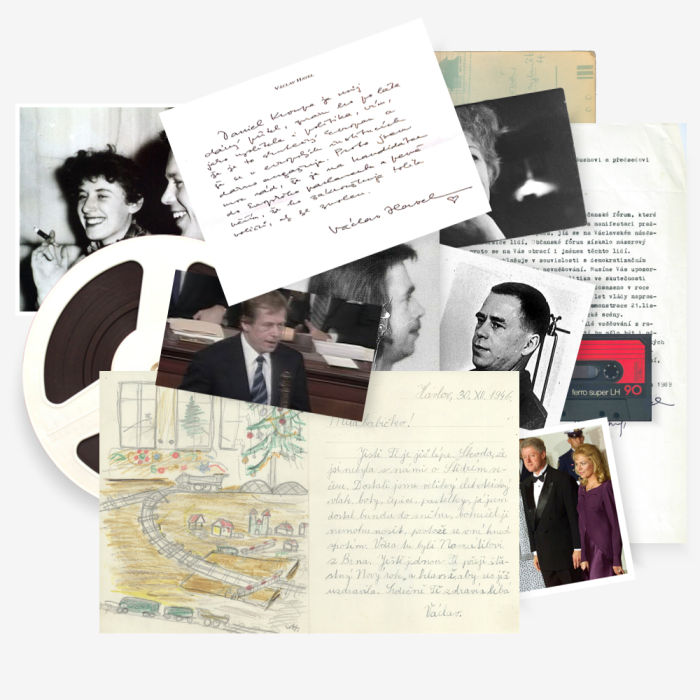
The Václav Havel Library is gradually gathering, digitizing, and making accessible written materials, photographs, sound recordings and other materials linked to the person of Václav Havel.
- 71004 records in total
- 27933 of events in the VH's life
- 2831 of VH's texts
- 2125 of photos
- 403of videos
- 568of audios
- 6604of letters
- 15101of texts about VH
- 8269 of books
- 40721of bibliography records
Access to the database of the VHL’s archives is free and possible after registering as a user. Accessing archival materials that exist in an unreadable form is only possible at the reading room of the Václav Havel Library, Ostrovní 13, 110 00 Prague 1, every Tuesday (except state holidays) from 9:00 to 17:00, or by prior appointment.
We will be glad to answer your queries at archiv@vaclavhavel-library.org.
Sign in (registered users only)
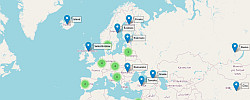
Havel in a nutshell
The virtual exhibition Václav Havel in a Nutshell places the life story of Václav Havel in the broader cultural and historic context in four chronologically distinct chapters with rich visual accompaniment. The exhibition is supplemented by the interactive map Flying the World with Václav Havel, which captures in physical form Havel’s global “footprint”.
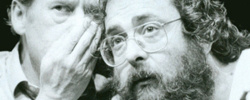
Vladimir Hanzel's revolution
Collage of recollections, images and sound recordings from Vladimír Hanzel, President Václav Havel’s personal secretary, bringing the feverish atmosphere of the Velvet Revolution to life.
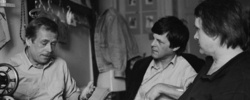
Václav Havel Interviews
A database of all accessible interviews given to print media outlets by the dramatist, writer and political activist Václav Havel between the 1960s and 1989. The resulting collection documents the extraordinary life story of an individual, as well as capturing a specific picture of modern Czechoslovak history at a time when being a free-thinker was more likely to lead to jail than an official public post.
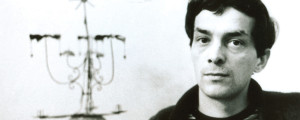
Pavel Juráček Archive
The Pavel Juráček Archive arose in February 2014 when his son Marek Juráček handed over six banana boxes and a typewriter case from his father’s estate to the Václav Havel Library. Thousands of pages of manuscripts, typescripts, photographs, documents and personal and official correspondence are gradually being classified and digitalised. The result of this work should be not only to map the life and work of one of the key figures of the New Wave of Czechoslovak film in the 1960s, but also to make his literary works accessible in the book series The Works of Pavel Juráček.
The aim of the Václav Havel Library is to ensure that Pavel Juráček finds a place in the broader cultural consciousness and to notionally build on the deep friendship he shared with Václav Havel. Soon after Juráček’s death in 1989 Havel said of him: “Pavel was a friend of mine whom I liked very much. He was one of the most sensitive and gentle people I have known – that’s why I cannot write more about him.”
All about Library
The Václav Havel Library works to preserve the legacy of Václav Havel, literary, theatrical and also political, in particular his struggle for freedom, democracy and the defence of human rights. It supports research and education on the life, values and times of Václav Havel as well as the enduring significance of his ideas for both the present and future.
The Václav Havel Library also strives to develop civil society and active civic life, serving as a platform for discussion on issues related to the support and defence of liberty and democracy, both in the Czech Republic and internationally.
The main aims of the Václav Havel Library include
- Organizing archival, archival-research, documentary, museum and library activities focused on the work of Vaclav Havel and documents or objects related to his activities, and carries out professional analysis of their influence on the life and self-reflection of society
- Serving, in a suitable manner, such as through exhibitions, the purpose of education and popularisation functions, thus presenting to the public the historical significance of the fight for human rights and freedoms in the totalitarian period and the formation of civil society during the establishment of democracy
- Organizing scientific research and publication activities in its areas of interest
Podpořte nás
We are well aware that freedom and democracy must be nurtured. Here at Ostrovní 13, but also on the audiovisual platform Havel Channel, we strive to do so through our own educational programmes, talks, discussion meetings, books, exhibitions, concerts, theatre performances. We honour Václav Havel's legacy and wish that the Library be a living organism and open to all. That is why our programme is free of charge for everyone. This would not be possible without regular financial support from our supporters. Become one of them...
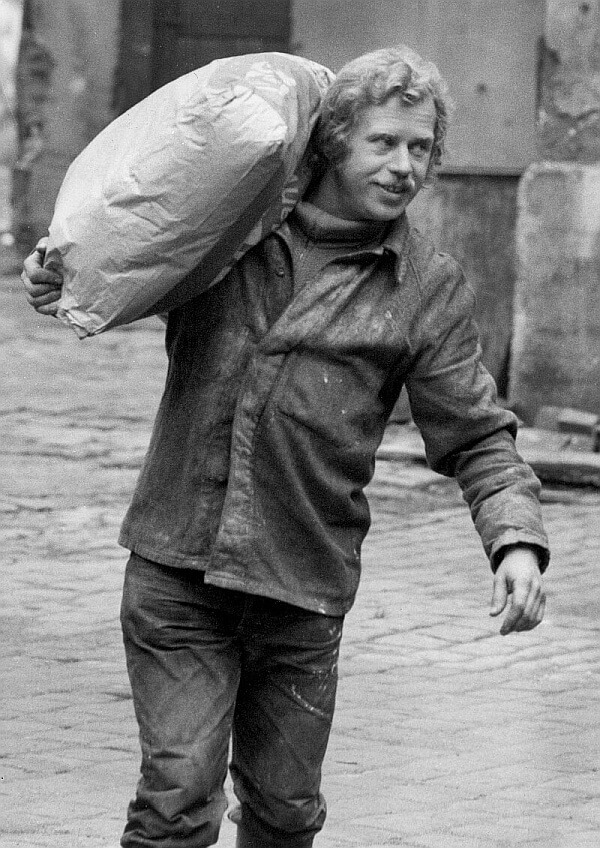
Support us with a financial donation
Does our work make sense to you and do you want to support the activities of the Vaclav Havel Library?
You can easily make a one-time payment by scanning the QR code.
Would you like to contribute regularly? Then we invite you to become a member of the Friends of the Vaclav Havel Library Club. What are the benefits of membership? Find out more.
Help us expand the archive
The Vaclav Havel Library manages an archive of writings, documents, photographs, video recordings and other materials related to the life and work of Vaclav Havel. This archive is predominantly in digital form. If you or someone close to you owns any original texts, correspondence, photographs, speeches or any other work by Vaclav Havel, we would be grateful if you could contact us.
You can donate in other ways too
Supporting a specific charitable or public benefit organization whose activities you appreciate or have been supporting for a long time is also possible through a will. This form of donation is quite common abroad, but in the Czech Republic this tradition is only just taking root.
Share information about us
The Vaclav Havel Library is open to media and promotional cooperation, mutual sharing of links, publishing our banners or information about our events.
For more information, please contact us.
Donations have their rules
At the Vaclav Havel Library, we uphold a transparent, responsible and ethical way of dealing with all those who contribute to fulfilling our purpose and implementing our strategy. Our code of ethics summarizes the basic rules of donations.
Get involved in volunteering
Would you like to get involved as a volunteer? That's great. We welcome anyone who wants to help our work.








